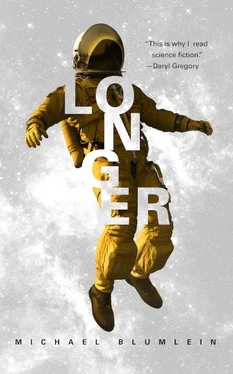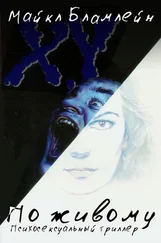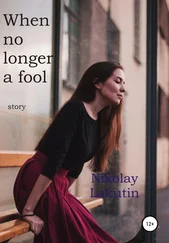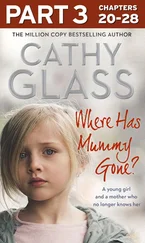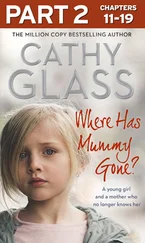He glanced at Gunjita. Sensibly, kept his hands to himself, though not without an effort.
Focused on Cav.“Ninety percent,” he said, coming clean and braving embarrassment.
Cav, who had suspected as much, merely nodded. “My question is this: can you feel the difference?”
“What difference is that?”
“In color. Tint. Shade. Before and after.”
Leave it to Cav.
Who proceeded to elaborate. “Our visitor … sometimes it looks yellowish-green, sometimes greenish-yellow. I want to know how it’s doing that. If it’s doing that, if it’s truly changing.”
Whether he could or couldn’t differentiate wavelengths of light with his new biology had never entered Dash’s mind. Now, of course, he was curious.
He raised two fingers, and gently touched his cheek. Was halted by the bristle, which felt like a bed of nails. Pressed past it, onto his skin itself, which was warm, feathery, and giving. Pillow-soft, barely any resistance, as though it were backing away from his touch, receding. Was it lighter colored than before? Nothing to compare it to. But he felt something.
Amazing.
Also possible: he was making it up. Not his sense of touch at all, but his imagination.
How to distinguish between the two? Gunjita would run an experiment. Cav might run one, too, though just as likely take what he said at face value.
Nothing quite as good as working with Cav.
Who was watching him now. Thinking of the Ooi. Hoping for good news. “Yes? No?”
“Maybe.”
“Maybe?”
“Yes. Maybe.”
“Weak or solid?”
“Not weak.”
“Then solid.”
“Yes. Solid. Definitely. A solid maybe.”
Cav did not conceal his joy. He took Dash by the arm. “Maybe’s good enough for now. Come this way, you beautiful man. Let’s put your new talent to work.”
How do we know a thing? The age-old question. How to arrive at a mutual, shared understanding? Belief and conviction come too easily to some; to others, they’re as hard to induce as laughter from a stump. [1] From Who and What Can Hurt Us: Rebuttal to Arguments against HUBIE Research, by 1URTH Press.STYLES: loosen
Face-to-face with it, Dash thought that Cav was pulling his leg. That he’d gotten him up under false pretenses, for a different, as-yet-unannounced purpose.
“You’re saying that’s alive?”
“Working hypothesis.”
“Is it even organic?”
“Best guess: yes.”
“It looks like puke.”
“So I’ve been told.”
They were suited, helmeted, and gloved. Cav extended a hand and draped it lightly atop the Ooi, as he had done previously. All living things on Earth had a pulse of some kind. It varied enormously, and in the long, fruitful history of describing and categorizing life on Earth had often been missed, and a living thing had been taken for nonliving, or possibly once living, now dead. Human perception was limited. Human imagination was also limited: perceptions went unrecognized simply because they had nowhere to go. Add to this the hugeness of the universe, where a creature might exist without a pulse, or with a pulse that beat once every million years. You just never knew.
“You try,” he said, removing his hand.
Dash started with a finger, then two, then all five. He felt more glove than anything at first, and pressed slightly harder. Suddenly the Ooi sprang to life with contour and dimensionality: he felt peaks, valleys, ridges, draws, craters. He felt hardness, too, and roughness in spots, smoothness in other spots. All very rocklike. No softness, no give, no inner plasticity or suppleness.
He glanced at Cav, gave a shrug.
“Try closing your eyes. Empty your mind of preconceptions.”
He did this, stilled his breathing, and alerted himself to the faintest, weakest signal.
He waited.
And waited.
At length he felt something.
Or almost something. An incipient something, like a secret about to be spoken, a feint followed by a gradual retreat, an impending sneeze, or rather the suggestion of a sneeze, a sneeze that fizzles. Like that. Present for the briefest time, then gone.
“What?” asked Cav. “What is it?”
“It disappeared.”
“What disappeared?”
He tried to describe it.
“Movement? A pulse of some kind?”
“Maybe. I don’t know. Probably nothing. Probably me, not it. I need to touch it with my bare skin. Without gloves.”
“Yes. Me, too. And smell it. And taste it.”
Dash gave him a look. “Your tongue? Really?”
“Or yours.”
A joke, from anyone else.
“Is it more sensitive, too?”
“My tongue?”
Cav nodded. “To touch.”
He hadn’t noticed. Taste was such a dominant sense. “Leave it to you to ask.”
Cav was thinking about hair on the tongue, baboon or otherwise, and how it might be put to use.
Dash pressed the tip of his against his teeth. “And the risk of contamination?”
“Use a condom.”
“On my tongue? Wouldn’t that defeat the purpose?”
“We’ll leave taste for last. How’s that?”
* * *
While the HUBIES were thawing, and the men were manning around, Gunjita was in the cupola, debating with herself. They’d been on the station nearly a month, had less than a week remaining, but she wanted to leave at once.
It wasn’t because of Dash. It wasn’t the HUBIES. It wasn’t Cav’s craziness around the Ooi. The craziness was a veil.
It was what was going to happen when the veil came off.
He was planning to end his life. She’d seen the drugs he’d brought and tried to hide. She knew what was going through his mind.
The idea was awful in too many ways to count.
What she didn’t understand: if there was anything Cav hated more than deceit, it was self-deceit. Honesty-Whatever-the-Cost was his nom de guerre. So why was he acting this way? He seemed to be lying to her and to himself. Was he undecided? Did he need more time?
Did it matter? Either way, she was a hostage.
She felt trapped. The tension onboard was like a cage, and she longed to break free of it.
Earth was dark beneath her. Beads and blotches and smears of light glittered the globe. Then sunrise came, and the globe turned blue and white.
Blue for the Indian Ocean, which spooled into view. White for the clouds, which hung like shreds of paper over it. Also over the landmass of southern India, half hiding its parched brown interior, and the fringe of green along the Kerala coast. Sri Lanka, a recent powerhouse in the global economy, appeared to be nosing its way toward the mainland, with the intention of taking a bite.
And now the Himalayas, a long, curved fold in the Earth’s pie crust, sprinkled with powdered sugar. The Ganges snaking south. Rishikesh, her birthplace, in the foothills, on the great river’s shore.
She thought of her parents, both of them deceased. Her father, a happy, soft-spoken teacher. Her mother, a successful businesswoman, energetic and ambitious. Gunjita took after her mother. Had headed a lab for the better part of two lifetimes. Had shaped and commanded battalions of scientists. Had created a stronghold of research, which had not only withstood the steady assault on science but had become iconic in the field. A safe, protected place. A haven for free but disciplined thinkers. A refuge for the best and the brightest, where failures, by definition, rarely occurred.
She was on leave, could return at any time. Hard to think of anything to rival it, though she could do without the money part. The funding, the begging, the paperwork, the courtship. It was a constant struggle to survive.
But the life of the mind. Of discovery. What could be better? What exercise could come close to the exercise of logic?
Читать дальше
